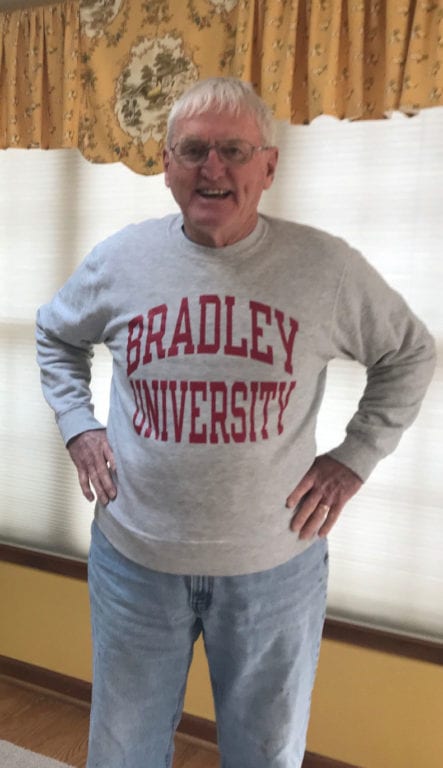On the weekend of June 7th through 9th, I had the privilege of attending the 2019 International Waldenstrom’s Macroglobulinemia Foundation‘s Annual Educational Forum in Philadelphia, Pennsylvania on the behalf of Patient Worthy. I have always found these events incredibly interesting and they are also a great opportunity to sit down with rare disease patients one on one to learn about their experiences.
While I was there I spoke with Mr. Skip Michael from New Jersey, who was first diagnosed with the disease in March 2016. At this juncture, Skip is currently in a “watch and wait” period following successful treatment of his Waldenstrom’s macroglobulinemia (WM) with rituximab.
As with most rare disease patients, it took Skip quite some time to get diagnosed following the first noticeable symptoms. These symptoms first began to appear in May 2015.
“I had recognized that I had some numbness in my feet. I asked my podiatrist about it.”
At this point, Skip was experiencing a symptom that affects a significant portion (but not all) of WM patients:

peripheral neuropathy. This is a symptom that few other related cancers cause, but it is far from enough for a diagnosis. Skip made the right call to consult a professional soon after the symptoms occurred. From this point began Skip’s diagnostic odyssey, in which he visited several neurologists without much progress.
“I had the blood work done, and when it came back it showed the high IgM.”
Here Skip is talking about a critical disease indicator in WM: the IgM antibody. The cancer cells in WM, which are both plasma cells and lymphoplasmacytoid cells, secrete this antibody, causing its levels to elevate in the blood. After a final bone marrow biopsy (which is the standard diagnostic approach for the disease), it was clear that Skip had WM.
Skip was initially told to begin treatment with ibrutinib (marketed as Imbruvica) which is the only FDA approved treatment for the disease; although he received the drug he never took it because of cost considerations and because he was told that he would have to use it indefinitely.
“My neurologist told me that it wasn’t essential for me to get on ibrutinib right away.”
Skip took an additional anti-MAG blood test which confirmed that Skip’s neuropathy was the result of the elevated IgM levels caused by WM.
Since the only symptom Skip was experiencing so far was neuropathy, he was told that rituximab (marketed as Rituxan) would be a useful alternative. A number of combination treatments with Rituxan and various chemotherapy agents are popular alternatives to Imbruvica. Within a year of treatment with Rituxan, Skip’s IgM levels had dropped by more than half and stabilized.
Skip learned about the IWMF by conducting online research. From there, he learned about a local support group managed by the organization. He was then invited to the next educational forum in 2016. Since then Skip and his wife have attended most of the annual forums.
Nonprofit groups like the IWMF, which are often started by patients themselves, are essential resources that can help support patients and fund critical research for treatment. If you are a recently diagnosed rare patient, seek out supporting organizations; you may be pleasantly surprised by what you find.


